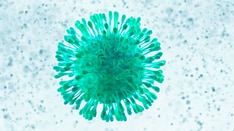The US Food and Drug Administration (FDA) today approved the first adjuvanted vaccine for influenza A H5N1 — a form of bird flu — that is designed to maximize the number of doses available during a possible pandemic, the agency announced today.
The new vaccine is indicated for individuals 18 years of age and older who have a higher risk of exposure to the virus.
Limited outbreaks of other versions of avian influenza such as A H6N1 and A H7N9 have made headlines recently, but public health authorities nevertheless remain on alert about the threat of an A H5N1 pandemic.
Most people have no immunity to the virus, which typically has been contracted from infected poultry.
Since 2003, more than 600 cases of highly pathogenic A H5N1 influenza have been reported to the World Health Organization from 15 countries in Asia, Africa, the Pacific, Europe, and the Near East, according to the US Centers for Disease Control and Prevention. Roughly 6 in 10 of the infected individuals died.
In 2007, the FDA approved the first vaccine for influenza A H5N1, which was unadjuvanted. The US government bought up the vaccine from the manufacturer, Sanofi Pasteur, for its national emergency stockpile in case the A H5N1 virus gained the ability to spread easily from person to person.
The vaccine approved today is adjuvanted, meaning that it contains a substance that enhances or directs the immune response of the vaccinated person, according to the FDA. With the adjuvant, vaccine makers can use a smaller amount of influenza virus protein than customary to trigger the desired immune response in a patient. This increased efficiency allows manufacturers to stretch their supplies of influenza virus protein and increase the number of doses for the public if a pandemic strikes.
The adjuvant is an oil-in-water emulsion called AS03.
The FDA based its approval of the new vaccine on a clinical trial involving about 3400 adults ages 18 years and older. Of the 2,000 adults who received the vaccine as opposed to a placebo, 91% of those ages 18 to 64 years of age developed antibodies at a level likely to lower their risk of catching the flu. This level of immune response was achieved in 74% of individuals 65 years and older.
Injection site pain was the most common adverse event reported during the study. Some patients also experienced muscle aches, headache, fatigue, and injection-site redness and swelling.
The adjuvanted vaccine for influenza A H5N1 is injected intramuscularly in 2 doses separated by 3 weeks.
The vaccine, manufacturer by a subsidiary of GlaxoSmithKline Biologicals, will not be made commercially available. Instead, the government is buying the vaccine for the national stockpile that public health authorities will distribute if the need arises.
More information about today's announcement is available at the FDA Web site.
Medscape Medical News © WebMD, LLC
Heartwire © WebMD, LLC
WebMD Health News © WebMD, LLC
Reuters Health Information ©
Send comments and news tips to news@medscape.net.
Cite this: FDA Approves First Adjuvanted Vaccine for H5N1 Bird Flu - Medscape - Nov 22, 2013.






Comments